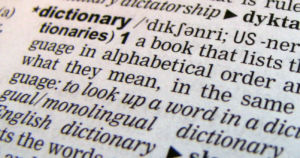
Review: Say What You Will by Cammie McGovern
Although the book was fun and interesting in places, the disability aspect was very much a freak-show presentation of disability and the disabled experience.

Although the book was fun and interesting in places, the disability aspect was very much a freak-show presentation of disability and the disabled experience.
We’ve decided to continue Disability in Kidlit as an ongoing blog rather than a one-time event!

Our reviewers interview author and Disability in Kidlit editor Corinne Duyvis about disability tropes, survival in the apocalypse, and writerly research.

If you looked at me as a teenager, particularly during my freshman year in high school, I would not have stood out from my peers. If you looked closer at my dominant right hand, though, you’d see there was a significant problem.

An emotionally wrenching book, but a worthy one, and one that treats its autistic protagonist with every bit of the realism and respect that she deserves.

Linette is more a convenient plot device than a protagonist, and disabled readers deserve more. Young Knights of the Round Table is a prime example of incidental disability done wrong.

The only way I can describe Take a Good Look by Jacqueline Wilson is a book designed to educate young children about visual impairment gone horribly wrong.

To help authors make informed decisions about what language to use, we talk about disability terminology–from outdated words and cringe-worthy phrases to straight-up ableist slurs, and everything in between.

Eli is a refreshing wheelchair-using character who regularly surprises and aids the protagonist with his skill set and mind.

People like Early do exist, and it’s great to see historical fiction that includes a disabled character, but Early gets a little too close to the trope of the magical or extra-special autistic for my comfort.